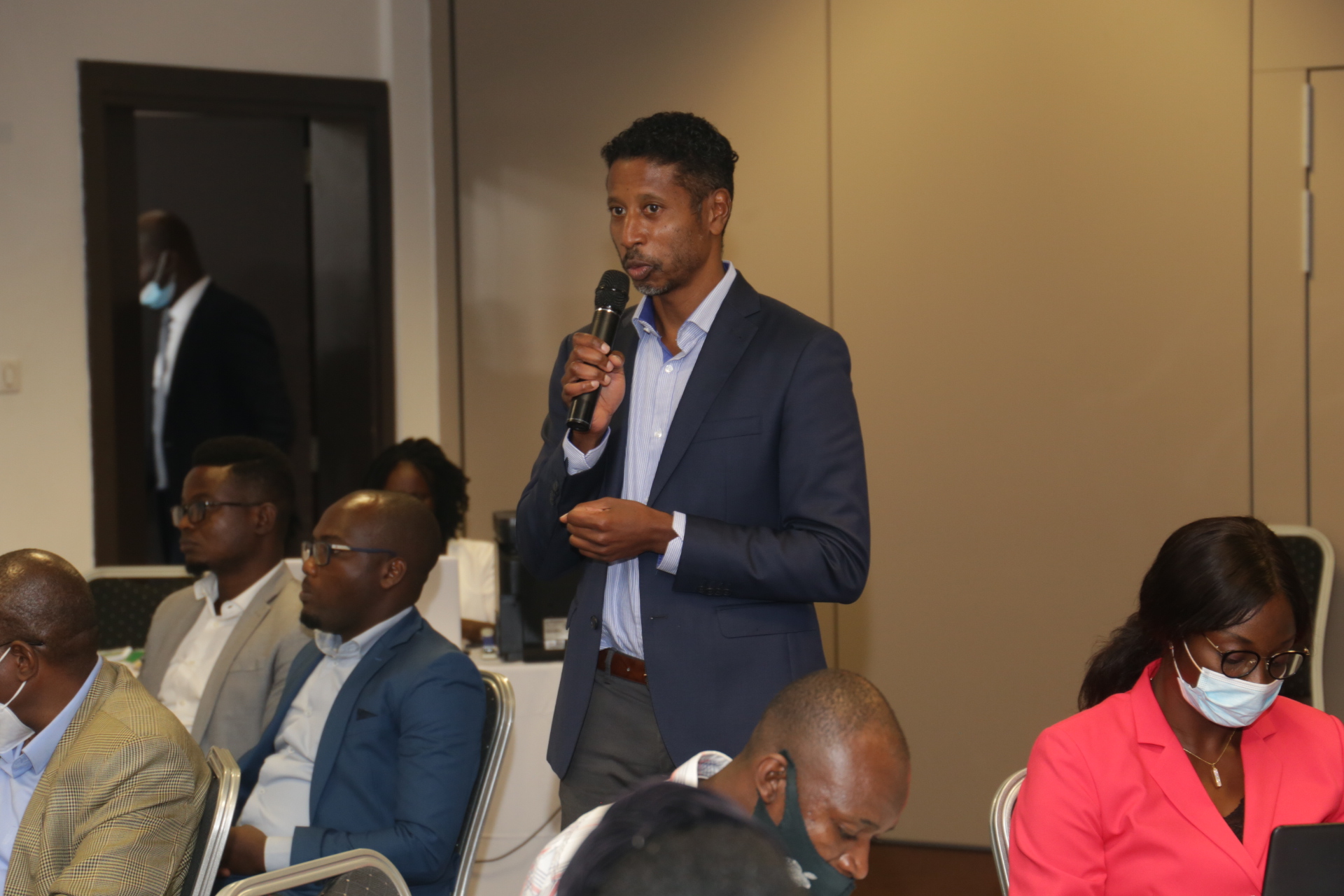Fight against financial crime: Building the capacities of West African microfinance institutions
In February and March 2023, the OCWAR-M project held its final workshops for MFIs and their supervisors in Lomé and Cotonou. These workshops completed a training programme to build the capacities of these stakeholders in the fight against money laundering and terrorist financing (AML/CFT). They made it possible to “measure the progress achieved by MFIs and their supervisors since their first training sessions, obtain feedback on the difficulties encountered in establishing AML/CFT mechanisms, and outline the future action required to strengthen the fight against financial crime in these entities”, says Samuel Diop, lead expert for the OCWAR-M project and head of the technical assistance programmes conducted for financial institutions.
Between December 2020 and March 2023, the project organised 16 training sessions in 7 ECOWAS countries. These sessions trained more than 320 representatives from MFIs and nearly a hundred representatives from their supervisory authorities. It was important for OCWAR-M to focus on this particularly sensitive sector because several countries in the region are on the Grey List of the Financial Action Task Force (FATF),[1] and the mutual evaluations conducted by the Intergovernmental Action Group against Money Laundering in West Africa (GIABA)[2] have highlighted the exposure of MFIs to risks of money laundering and terrorist financing (ML/TF).

Microfinance institutions: key targets for criminals
The many MFIs in West Africa play a crucial role in poverty reduction and financial inclusion by providing financial services to people who previously did not have access to them. As their objective is to be accessible to all, certain rules may be less strictly applied than in banking institutions. Most MFIs are small with limited resources. They are still not fully aware of AML/CFT regulations and, therefore, of how to apply them. Without an effective identification of clients and a profiling system for clients and operations, they can be highly attractive to criminals seeking to launder their funds and to funders of terrorism.
Practical training for MFIs and their supervisors
To strengthen the capacity of MFIs to prevent their being exploited by criminals, the OCWAR-M project has worked with the directors, employees and representatives of the professional associations of these institutions. These sessions had a very operational objective: provide them with an understanding of their obligations under AML/CFT laws and present them, step by step, the measures they need to take to establish an effective mechanism that complies with these obligations.
MFI supervisors were involved in these training sessions. The objective was to give them the opportunity to discuss with representatives of these institutions, so that they could learn about the shortcomings in their AML/CFT mechanisms, and also better understand the challenges they face in improving them. This is an important point because, as underscored by Rafiou Bello, Director General of Benin’s supervisory authority,[3] their action “aims to sanction but also to support”. The supervisors also benefited from specific modules on the controls they need to carry out to ensure that MFIs comply with AML/CFT laws.
MFIs and supervisors committed to the fight against financial crime
The discussion and evaluation sessions organised in early 2023 confirmed the increased awareness of MFIs and supervisors and their commitment to AML/CFT. Many MFIs reported that they had appointed AML/CFT managers and established internal procedures to monitor suspicious financial transactions and conduct reasonable due diligence to identify high-risk clients and transactions. The supervisors also affirmed their determination to make further efforts to strengthen their controls.
While there is still a long way to go because, as pointed out by Samuel Diop, an expert mobilised for the project, these institutions “are caught between their financial inclusion mission and the implementation of effective AML/CFT measures, and continue to be faced with a lack of financial resources to strengthen their mechanisms”, these results can only encourage continued action to build the capacities of West African MFIs to combat financial crime.
---
[1] The FATF is the global ML/TF monitoring body that sets international standards to prevent these illegal activities. It identifies jurisdictions whose AML/CFT measures are weak in a “Grey List”. The countries on the list are placed under increased monitoring and have pledged to rapidly resolve the strategic deficiencies identified within the timeframe agreed with the FATF. Three West African countries are currently on this list: Burkina Faso, Mali and Nigeria.
[2] The GIABA is a specialised ECOWAS institution, responsible for strengthening the capacity of Member States to prevent and combat ML/TF.
[3] Benin’s supervisory authority is the National Agency for the Supervision of Decentralised Financial Systems (ANSSFD), attached to the Ministry of Finance. In West Africa, the term “decentralised financial system” is used to refer to MFIs.

